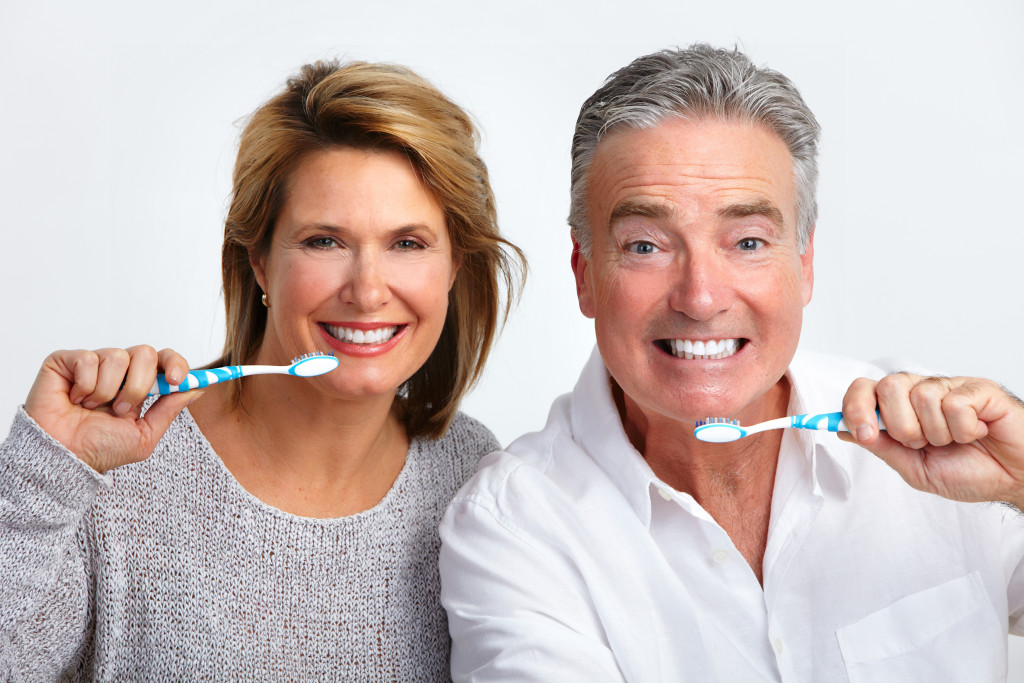As people age, dental health becomes increasingly important. The teeth can wear down and become more susceptible to decay and other issues. Many aging adults need to take more time to care for their teeth, and they may need to see the dentist more often. It’s crucial to make sure you’re taking care of your teeth as you get older if you want to avoid these problems.
Here are a few tips for improving your dental health as you age.
1. See the dentist regularly.
It’s essential to see the dentist at least every six months for a cleaning and checkup. This will help ensure that your teeth are healthy and that any problems are caught early. Depending on your oral health, your dentist may recommend more frequent visits.
You may also need some dental treatments more often as you age. For example, if you’ve had dental implant treatment before, you’ll need to see the dentist more frequently for checkups to ensure that the implants are still healthy. You may also need to have more frequent teeth cleanings.
Some dentists may also recommend seeing a dental hygienist more often. This is especially true if you have gum disease. A dental hygienist can provide deep cleanings that remove plaque and tartar from your teeth and gums. They can also teach you how to care for your teeth and gums at home properly.
2. Practice good dental hygiene.
Good dental hygiene is essential for keeping your teeth healthy as you age. Be sure to brush your teeth at least twice a day and floss daily. These simple steps will help remove plaque and tartar from your teeth and gums.
It’s also essential to use the right toothbrush. A softer bristled toothbrush is often best for people with sensitive gums. Be sure to replace your toothbrush every three to four months or if the bristles start to fray. It would be best if you also used toothpaste that contains fluoride. This mineral can help strengthen your teeth and prevent cavities.
In addition to brushing and flossing, you should also use mouthwash. Mouthwash can help remove plaque and bacteria from your mouth. It can also freshen your breath. Be sure to also choose a mouthwash that contains fluoride.

3. Quit smoking.
Smoking is one of the worst things you can do for your overall health, including oral health. Smoking makes you more likely to develop gum disease and other oral health problems, such as mouth cancer. Some of these problems can be difficult to treat, so quitting smoking is best to avoid them altogether.
If you need help quitting smoking, there are many resources available. Your doctor can provide information about nicotine replacement therapy and other cessation methods. You can also find support from local and online quit-smoking groups.
The effects of smoking may be permanent, so it’s never too late to quit. If you smoke, make quitting your top priority for better dental health.
4. Eat a healthy diet.
What you eat can have a significant impact on your oral health. A healthy diet is vital for maintaining strong teeth and preventing cavities. Be sure to include plenty of fresh fruits and vegetables in your diet, such as apples, carrots, and leafy greens. These foods contain vitamins and minerals that are good for your teeth and gums.
You should also eat calcium-rich foods like milk, cheese, and yogurt. Calcium is essential for strong teeth and bones. If you don’t get enough calcium from your diet, you may risk developing periodontal disease.
In addition to eating healthy foods, you should also limit sugary and acidic foods. These foods can damage your teeth and lead to cavities. If you do eat sugary or acidic foods, be sure to brush your teeth afterward.
5. Drink plenty of water.
Water is vital for your overall health and can help keep your mouth healthy. Drinking water helps rinse away food and bacteria that can cause cavities. It can also help prevent dry mouth, a common problem in older adults. Dry mouth can lead to tooth decay and other oral health problems.
Be sure to drink plenty of water throughout the day. If you’re not a fan of plain water, you can also drink sparkling water or add a slice of lemon or lime. Some people also find it helpful to carry a water bottle with them to take a sip whenever they’re thirsty.
Taking care of your oral health is essential at any age. But it’s vital as you age because your risk of developing oral health problems increases. Be sure to visit your dentist regularly, practice good dental hygiene, and eat a healthy diet. These simple steps will help keep your smile healthy for years to come.




